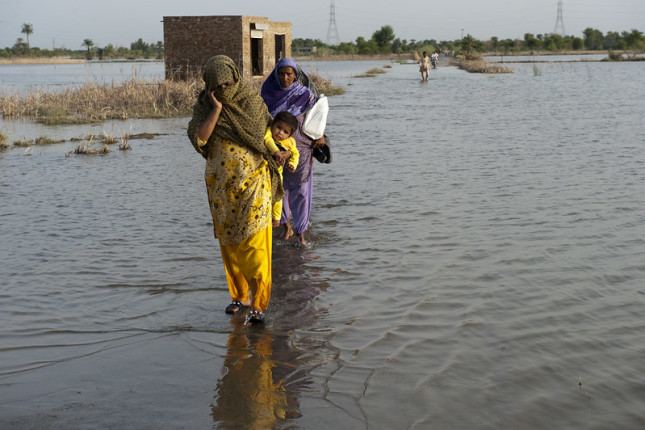-
Great Power Resource Competition in a Changing Climate: New America’s Natural Security Index
›Late last year, Reuters reported that the U.S. Defense Department plans to fund mining and processing operations for rare earth elements—a class of minerals for which China dominates the global market, producing over 80 percent of the world’s supply. In the past, China has restricted exports of rare earths, and recently threatened to do so again. Even with a phase one trade deal hammered out between the United States and China, natural resources are likely to remain a point of geopolitical tension.
-
China’s Risky Gamble on Coal Conversion
›China Environment Forum // Choke Point // January 9, 2020 // By Richard Liu, Zhou Yang & Xinzhou Qian
At the September 2019 United Nations General Assembly (UNGA) Climate Summit, the U.S. delegation, under the shadow of intended withdrawal from Paris, did not volunteer a speaker. Attention instead focused on China. As the world’s largest carbon emitter, China was poised to assert leadership on the climate crisis. However, perhaps lacking the sibling rivalry pressure that brought the U.S. and China together in 2014 on a joint climate agreement, State Councilor and Foreign Minister Wang Yi offered no new commitments: no carbon tax, no increased investment in renewables, and no announcement to set a more ambitious coal consumption cap.
-
Beware the Dark Side of Environmental Peacebuilding
›
Environmental peacebuilding is a good idea. As a practice, it aims to address simultaneously environmental problems and challenges related to violent conflict. Examples include the promotion of environmental cooperation between rival states, conflict-sensitive adaptation to climate change, and restoring access to land and water in post-conflict societies. As a concept, environmental peacebuilding directs researchers’ and politicians’ attention to cooperative adaptation as a response to environmental stress. It thus helps to correct one-sided narratives about environment-conflict links.
-
Community Input Improves Climate Change-Induced Resettlement Effort
›
In the Global South, climate change-induced resettlement requires a holistic and integrated approach, involving all stakeholders—state institutions, local customary and civil society institutions—and in particular respectful engagement with local traditional actors and networks. In a policy brief for the Toda Peace Institute, we examined climate change-induced resettlement from the Carteret Islands in the Pacific, a case which encompasses a broad range of issues relevant to future relocation efforts elsewhere. Those who seek to make this type of resettlement possible would do well to heed these lessons.
-
To Help Save the Planet, Stop Environmental Crime
› Since the dawn of the Industrial Revolution, humans have so vastly altered Earth’s systems that we’re now in the midst of what many are calling the Anthropocene Epoch. Human activity has become the dominant influence on climate and the environment, inflicting changes that may persist for millennia.
Since the dawn of the Industrial Revolution, humans have so vastly altered Earth’s systems that we’re now in the midst of what many are calling the Anthropocene Epoch. Human activity has become the dominant influence on climate and the environment, inflicting changes that may persist for millennia.We are razing the planet’s last intact wild lands, degrading, deforesting, carving up, and destroying huge swathes of habitat. We’re overfishing and poisoning our rivers and oceans. We continue to pump greenhouse gases into the atmosphere, raising CO2 levels and hastening climatic changes that are already affecting all life on Earth.
-
Multiple Sclerosis and Pregnancy: Terrie Livingston on Overcoming the Misconceptions
› “For me, [multiple sclerosis (MS)] presented itself shortly after the birth of my second son. I had these symptoms; I had this profound fatigue that I didn’t have with my first child,” said Terrie Livingston at a recent Wilson Center event about the growing threat of non-communicable diseases (NCDs) on maternal health. Livingston is the Head of Patient Outcomes and Solutions at EMD Serono, a business of Merck KGaA, Darmstadt, Germany.
“For me, [multiple sclerosis (MS)] presented itself shortly after the birth of my second son. I had these symptoms; I had this profound fatigue that I didn’t have with my first child,” said Terrie Livingston at a recent Wilson Center event about the growing threat of non-communicable diseases (NCDs) on maternal health. Livingston is the Head of Patient Outcomes and Solutions at EMD Serono, a business of Merck KGaA, Darmstadt, Germany. -
ICPD25: Midwives are a Key Part of any Health Workforce Dream Team
› “Midwifery is a fix, it is not an add-on,” said Franka Cadée, President of the International Confederation of Midwives (ICM) at the Nairobi Summit on ICPD25. The World Health Organization designated 2020 the Year of the Nurse and the Midwife in recognition of the invaluable contributions of these two professions. To meet the Sustainable Development Goals by 2030, midwives and nurses must be valued and utilized as essential members of the health workforce. Increased utilization of skilled midwives will also help countries achieve universal health coverage and improve access to sexual and reproductive health services, two key actions from the 1994 International Conference on Population and Development (ICPD).
“Midwifery is a fix, it is not an add-on,” said Franka Cadée, President of the International Confederation of Midwives (ICM) at the Nairobi Summit on ICPD25. The World Health Organization designated 2020 the Year of the Nurse and the Midwife in recognition of the invaluable contributions of these two professions. To meet the Sustainable Development Goals by 2030, midwives and nurses must be valued and utilized as essential members of the health workforce. Increased utilization of skilled midwives will also help countries achieve universal health coverage and improve access to sexual and reproductive health services, two key actions from the 1994 International Conference on Population and Development (ICPD). -
Foresight for Action | Improving Predictive Capabilities for Extreme Weather and Water Events in Pakistan
›
Pakistan ranks eighth on the list of countries most affected by extreme weather events (1998–2017 data), according to the 2019 Global Risk Index. With increasing global temperatures, severe weather and water events, like monsoons and droughts, are likely to become even more frequent and extreme in the future. Since the 1960s, Pakistan has observed changes in temperature and precipitation. By the end of the century, Pakistan’s temperatures are expected to be significantly higher than the global average.
Showing posts from category *Main.


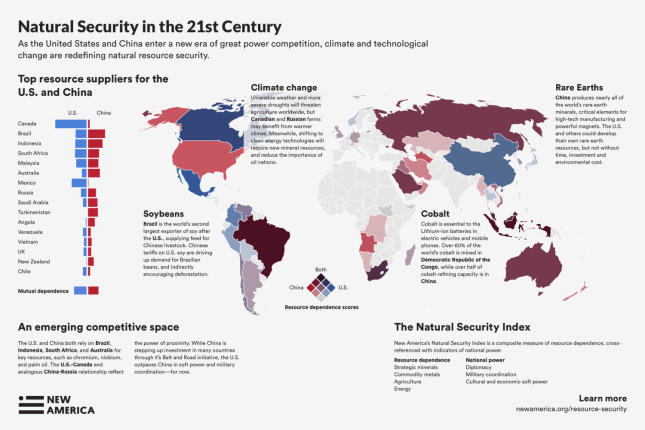

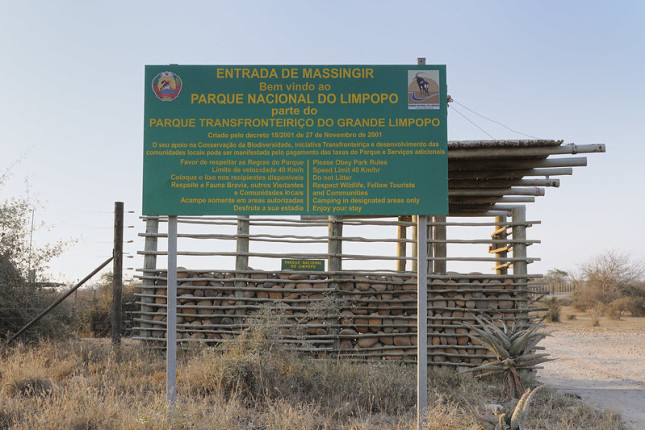
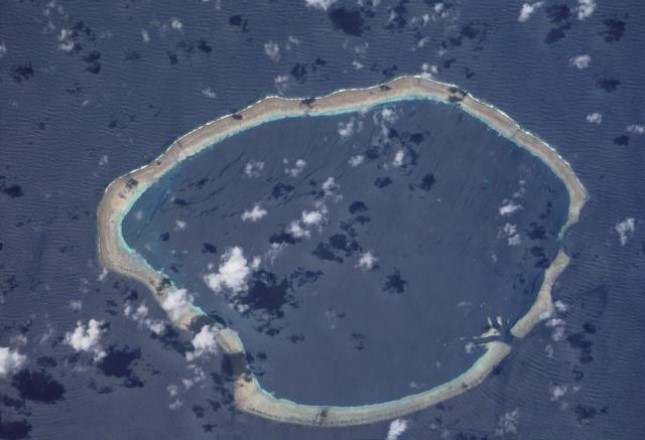
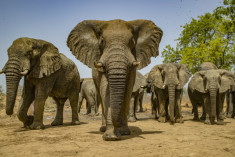 Since the dawn of the Industrial Revolution, humans have so vastly altered Earth’s systems that we’re now in the midst of what many are calling the
Since the dawn of the Industrial Revolution, humans have so vastly altered Earth’s systems that we’re now in the midst of what many are calling the 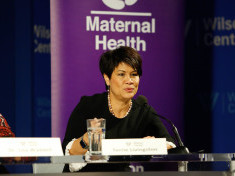 “For me, [multiple sclerosis (MS)] presented itself shortly after the birth of my second son. I had these symptoms; I had this profound fatigue that I didn’t have with my first child,” said Terrie Livingston at a
“For me, [multiple sclerosis (MS)] presented itself shortly after the birth of my second son. I had these symptoms; I had this profound fatigue that I didn’t have with my first child,” said Terrie Livingston at a 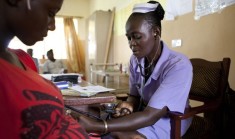 “Midwifery is a fix, it is not an add-on,” said Franka Cadée, President of the International Confederation of Midwives (ICM) at the Nairobi Summit on ICPD25. The World Health Organization designated 2020 the
“Midwifery is a fix, it is not an add-on,” said Franka Cadée, President of the International Confederation of Midwives (ICM) at the Nairobi Summit on ICPD25. The World Health Organization designated 2020 the 